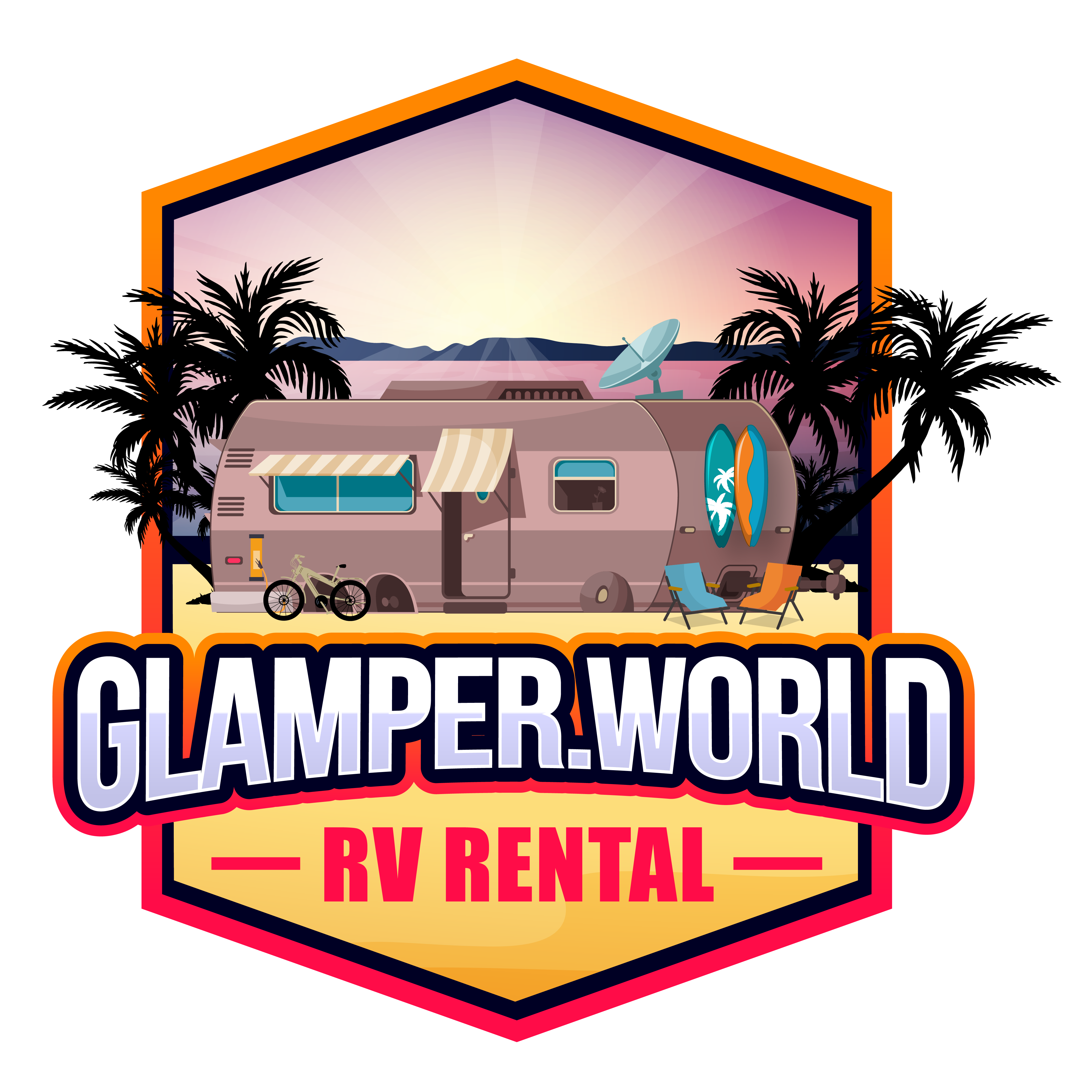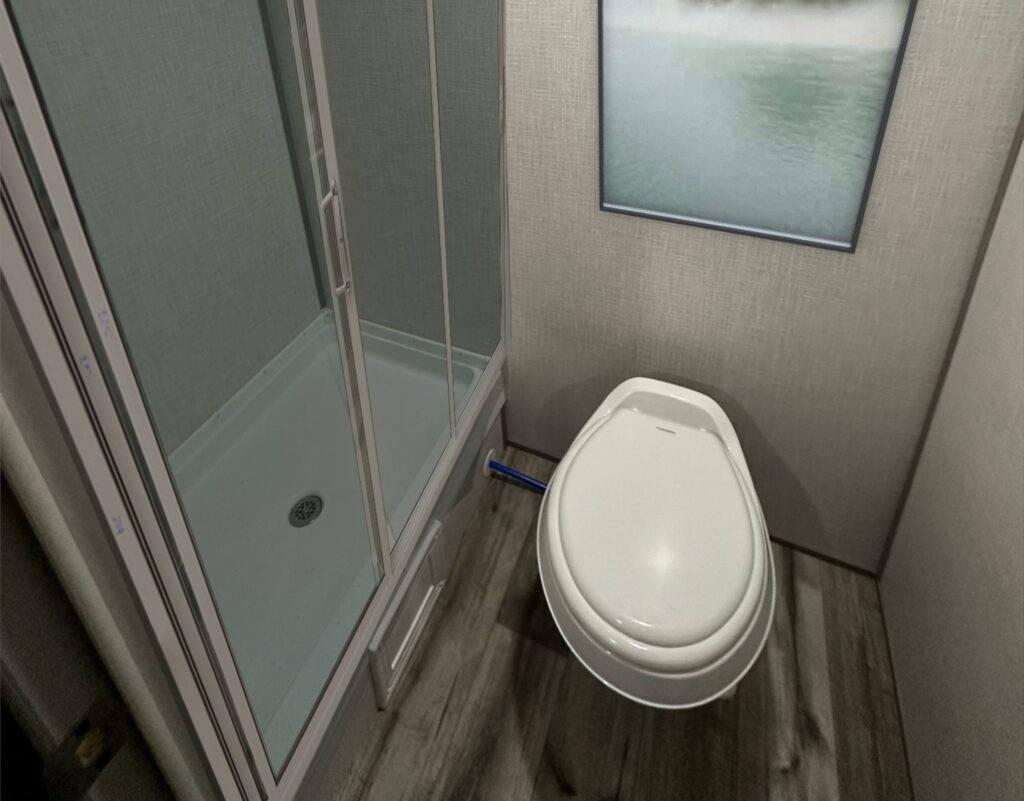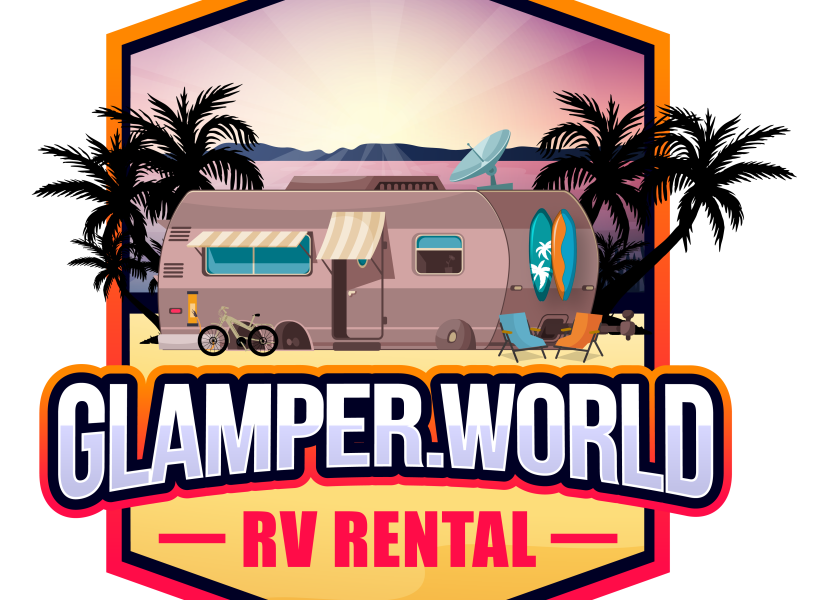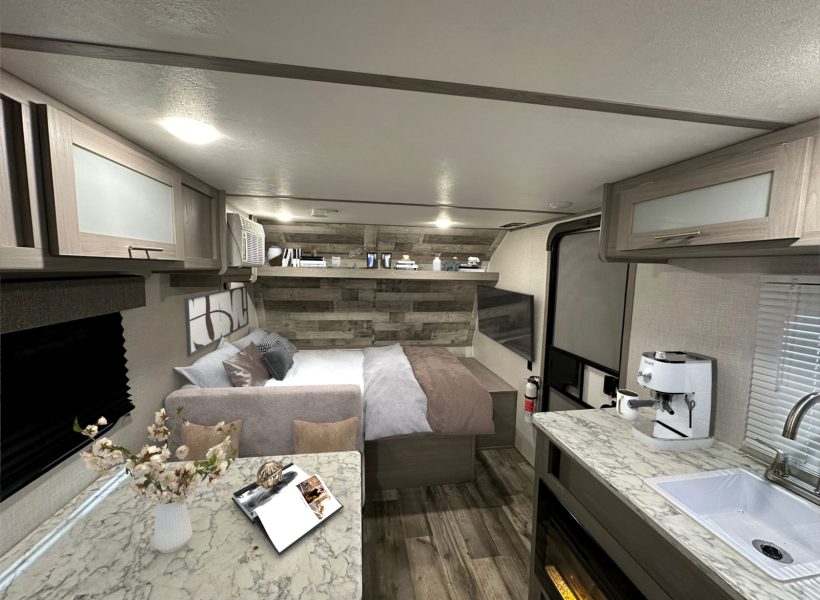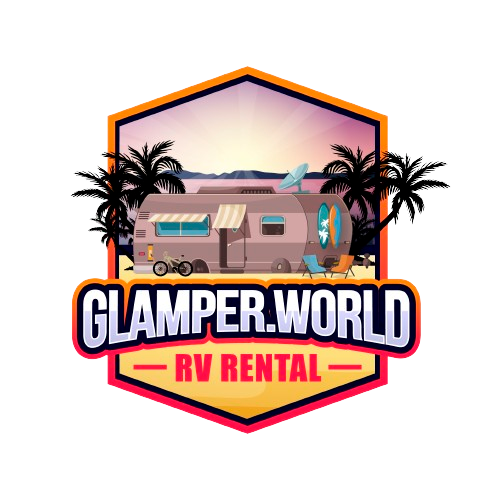RV toilets function differently than household ones. They’re connected to a holding tank, not a sewer system. When you flush an RV toilet, usually with a foot pedal, the waste drops directly into the holding tank, which must later be emptied. To minimize odors, your toilet bowl refills with a small amount of water after flushing.
There are different types of RV toilets: gravity flush, cassette, macerator, and composting, each with unique features and maintenance requirements. As you explore this further, you’ll find vital information to properly manage and maintain these vital features of your RV experience.
Understanding the Basics of RV Toilets
First off, you need to grasp that RV toilets function differently than your regular home toilet. Instead of being connected to a sewer system, they’re linked to a holding tank, often called a black water tank. This tank stores waste until you’re able to dump it at a designated dump station.
Most RV toilets make use of a pedal for flushing, not a lever like you’re probably used to. You step on the pedal, the waste drops into the black water tank, and the toilet bowl refills with a bit of water to keep odors at bay. It’s a simple system, but understanding how it works is key to maintaining it properly.
Differences Between Home and RV Toilets
Despite their similar appearance, your home toilet and the RV toilet operate on vastly different systems, each with its unique set of advantages and challenges.
Your home toilet uses a lot of water for each flush, which is directly connected to the city’s sewage system.
On the other hand, an RV toilet uses minimal water and stores waste in a holding tank you’ll need to empty through the hose. The design of the RV toilet is more compact and lightweight, making it perfect for travel.
However, it comes with the challenge of managing waste disposal, which isn’t a concern with home toilets.
Types of RV Toilets
Diving right into the types of RV toilets, you’ll find there are several variations, each with its own unique features and functions. The most common type is the gravity flush toilet, which uses the force of gravity to dispose of waste. However, we’ll delve more into that later.
Then, you’ve got cassette toilets, a portable option that’s perfect for smaller RVs. They’re easy to clean and maintain, with a removable waste tank you can empty at any dump station.
There’s also the macerator toilet, which grinds waste into a slurry before disposing of it.
Lastly, you’ll come across composting toilets. They’re eco-friendly, turning waste into compost over time. Choosing the right type depends on your RV’s size, your travel style, and personal preferences.
The Functioning of Gravity Flush Toilets
You might be surprised to learn that the most common type of RV toilet, the gravity flush toilet, operates on a remarkably straightforward principle. When you flush, a pedal or handle opens the bottom of the bowl, allowing waste and water to drop straight into an attached tank beneath. A combination of water and gravity to create pressure for flushing. This action uses gravity, hence its name.
The tank holds the waste until you’re ready to empty it. The simplicity of this system makes it a top choice for many RV owners. It’s reliable, easy to use, and requires minimal maintenance. However, there’s one downside: you’ll need to ensure your RV is level for it to work properly. Otherwise, you might encounter problems with effective flushing or draining.
How Cassette Toilets Work
Moving on to another type of RV toilet, let’s explore how does cassette toilet work. cassette toilets do use water to flush toilet contents into the portable waste tank. This toilet type is a two-part system. You have an upper section that you’ll use like a traditional toilet, and a lower section, known as the cassette, that collects waste. After use, you’ll separate the two parts to empty the cassette at a designated dumping station.
It’s a straightforward process, but it requires manual handling, so cleanliness is crucial. A clear advantage is its compact size, making it ideal for smaller RVs. However, limitations include frequent emptying and limited capacity.
In short, cassette toilets offer a simple, space-saving solution for waste management in your RV, but they do demand regular maintenance.
How Does RV Toilet Composting Work
Let’s delve into the world of composting RV toilets, a unique and eco-friendly approach to waste management in your motorhome. Unlike traditional RV toilets, these systems separate solid and liquid waste.
The solid waste is mixed with a composting medium like peat moss or coconut coir, which kickstarts the composting process. This reduces odor and breaks down waste into safe, usable compost.
The liquid waste, on the other hand, is stored separately in a tank and must be emptied regularly. You won’t find any flush mechanism here. Instead, you use a crank or handle to mix the solid waste and composting material.
It’s a different experience, but once you get the hang of it, you’ll appreciate its benefits.
Maintenance Tips for RV Toilets
Maintaining your RV toilet properly can prolong its lifespan and keep your travels hassle-free. It’s essential to use RV-specific toilet paper that breaks down easily to prevent clogs. You’ll also want to clean your toilet regularly with non-abrasive cleaners to protect the seals and moving parts.
Avoid flushing solid items, like feminine hygiene products, which can damage your system. Regularly check the seals for leaks, replacing them if needed. Using a toilet seal conditioner can help maintain the rubber seals.
Empty your black water tank when it’s about two-thirds full. After emptying, flush the tank with clean water to remove any remaining debris. Lastly, always use a tank treatment to control odor and break down waste.
Frequently Asked Questions
What Are Some Common Issues With RV Toilets, Water Tank, and Their Solutions?
Common RV toilet issues you might encounter include clogs, leaks, or a faulty water valve. You can often fix these by using a plunger, tightening connections, or replacing the valve respectively.
Can Regular Toilet Paper Be Used in an RV Toilet?
No, you can’t use regular toilet paper in an RV toilet. It doesn’t break down quickly enough and can clog your system. You should use RV-specific toilet paper that dissolves faster to prevent any issues.
Are There Any Eco-Friendly Alternatives for RV Toilets?
Yes, there are eco-friendly alternatives for RV toilets. You can use composting toilets which don’t need water or chemicals. They’re sustainable, easy to maintain, and produce compost that’s safe for the environment.
How Often Should I Replace My RV Toilet?
You don’t need to replace your RV toilet often, unless it’s damaged or leaking. If it’s functioning well, there’s no set timeframe for replacement. However, regular maintenance ensures it lasts longer.
How Do I Install an RV Toilet Myself or Do I Need a Professional?
Yes, you can install an RV toilet yourself. It’s not too complex; you’ll just need some basic tools. However, if you’re not comfortable with DIY tasks, you might want to hire a professional.
Consider our RV Rental Service For Your Camping Experience.
Are you thinking about transportation to the iconic Burning Man Festival? Consider glamper RV rental. Renting an RV eliminates the hassle of packing and hauling bulky camping gear, allowing you to enjoy a stress-free and seamless experience. With our service, you can focus on creating unforgettable memories without worrying about the logistics.
At Glamper World RV Rental, we go above and beyond to ensure your camping adventure is nothing short of extraordinary. Our glamper campers boast top-of-the-line amenities, including custom requests, Starlink internet, smart TVs, Bluetooth speakers, espresso machines, outdoor seating areas, and even two e-bikes for exploring the surrounding terrain.
Conclusion
So, now you’ve got the scoop on how RV toilets work. They’re a bit different from your home toilet, but understanding gravity flush, cassette, and composting toilets makes it all a bit less mysterious.
With proper maintenance, you’ll have no issues keeping things flowing smoothly. Remember, your RV toilet is crucial for a comfortable trip.
So, keep up with your regular checks and enjoy your adventures worry-free.
